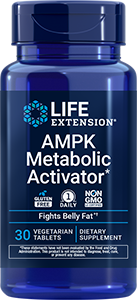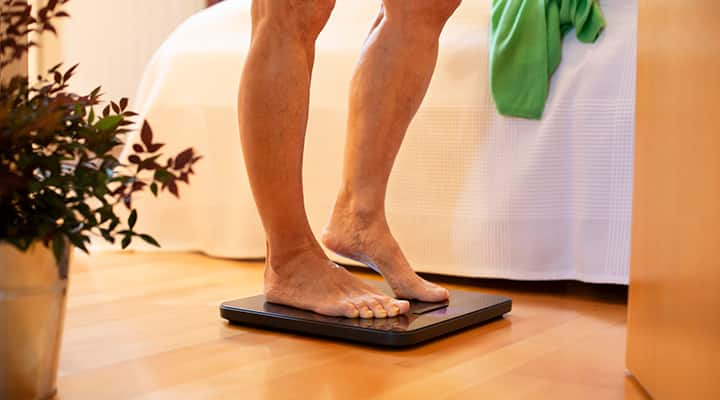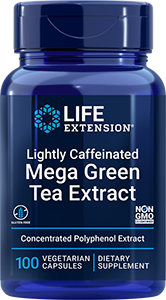
How Do You Properly Break a Fast?
Published: September 2022 | Updated: September 2025
What's the first thing you think about in the morning? If it's breakfast, we hereby award you 10 points. Breakfast, quite literally, is when you break your fast—because of all those hours overnight that you go without eating.
Yes, that's fasting! Well, one type anyway. In this blog, we discuss the types of fasting in more detail, the best things to eat and drink in order to break a fast—spoiler alert, proteins, veggies and smoothies made the list!—what you should avoid after breaking a fast, the best supplements to support your fasting efforts and how fasting fits into your weight loss goals.
What is fasting?
Fasting, by definition, means that you restrict your intake of solid foods and calorie-containing drinks.
There are many ways to fast! For some people, the approach may come down to traditional, cultural, or religious backgrounds. Other individuals may decide how to fast based on personal preference.
Additionally, there are different types of fasting:
| Type of Fasting | How It Works |
|---|---|
| Prolonged fasting | This is the most extreme type of fasting, lasting for more than 24 hours. Some people may do this for health reasons, but more commonly, prolonged fasting is tied to religious practices. |
| Intermittent fasting (IF) | An individual engages in short-term fasting. For example, they may restrict solid foods and calorie-containing beverages to a certain window of time each day, or they may alternate days (eating some days but not others). |
| Dirty fasting | This is a spin-off of intermittent fasting, where the individual eats very few calories (less than 100) during the fasting period. In other words, it's slightly more flexible than intermittent fasting. |
Keep in mind that these are general guidelines, but the definitions of different types of fasting can change depending on who you're talking to. For instance, some people consider prolonged fasting to last at least four days.
What happens to your body during a fast?
Your body needs energy all day to function optimally. It gets this energy in the form of sugar. (This is why you need to eat healthy carbs!) With fasting, the idea is that when your body eventually uses up its sugar stores, your metabolism switches to burning fat instead.
This may offer certain health benefits. For example, one meta-analysis that looked at some intermittent fasting strategies found that this approach to nutrition helped to support healthy weight along with already-healthy cholesterol, triglycerides and non-HDL levels.
According to research, intermittent fasting may also support cardiometabolic health, already-healthy blood pressure and even a healthy insulin response. It may protect you against oxidative stress, too.
What are the 10 best foods to break a fast?
Wondering what to eat after fasting?
A lot of foods that are great for you to consume in general are especially good for you after a period of fasting. Look for food that has a low glycemic index, which means that it'll support your already-healthy blood sugar levels. Protein will keep you satiated.
On the other hand, avoid simple sugars and processed foods.
Best of all, this is good advice for all of us, not only those who are fasting.
If you still need some ideas, here are 10 foods to chow down on when breaking your fast:
-
Eggs, which are a nutrient-packed source of healthy fat and protein
-
Cooked vegetables
-
Avocado, for healthy fats
-
Low-sugar fruits, like berries
-
Yogurt, if you're not sensitive to dairy
-
Soup
-
Nuts
-
Lean protein, like chicken or white fish
-
Fermented foods, which are excellent for gut health
-
"Bland" foods, like rice, plain potatoes or bananas, which are easier on the stomach
The best foods to break a fast might look slightly different from person to person, so try different things and see what works best for you.
What are the 10 best drinks to break a fast?
Please note that as long as they don't contain added sugar, the first three beverages on this list don't even technically break a fast, meaning you can consume them all day!
-
Tea, specifically green tea
-
Sparkling water
-
Coffee
-
Fresh juice, but watch out for the sugar—for example, pineapple juice is high in sugar
-
Coconut water
-
Smoothies, and again, watch the sugar content
-
Watermelon juice
-
Bone broth, which is gentle on the stomach and packed with nutrients
-
Sports drinks
-
Electrolyte-infused water
What supplements help support fasting?
Multivitamin or vitamin complex
: Because you're eating less, you may want to supplement with a multivitamin or vitamin complexes. These supplements can provide your body with the nutrients it needs, since you may not be getting all of them from food.Creatine
: This fitness supplement could be another good addition, as it supports your muscles and energy production. Creatine can be helpful for those days when you're feeling a little sluggish because of a decreased food intake.Probiotics and prebiotics
: Probiotics can help support your gut health. Meanwhile, prebiotics support the good bacteria in your body. (Yes, there are good bacteria!)Green tea supplements
: Don't forget about a green tea supplement—remember, you're allowed to drink green tea during a fast and it promotes heart health and healthy aging!
Can you eat while fasting?
We hate to break it to you, but unless you're dirty fasting, you shouldn't be eating at all. Otherwise, it's not a fast! Water is acceptable to consume, however, as are coffee and tea without any sweeteners.
On this note, it's crucial that during your fast, you stay hydrated and ensure you get enough electrolytes.
Can fasting help me lose weight?
The short answer is yes, fasting can help you lose weight. One meta-analysis found that intermittent fasting is comparable to caloric energy restriction (CER) as a method of weight loss. Specifically, alternate-day fasting showed the most effectiveness, followed by CER and then time-restricted eating (TRE).
However, we want to offer a gentle reminder. It's not just eating (or not eating) at certain times that leads to weight loss. It's functioning in a caloric deficit, meaning that you are consuming fewer calories overall. Fasting won't make a difference if you're consuming more calories than you're burning during non-fasting hours.
Furthermore, there are other variables at play, including stress management, sleep, and physical activity, all of which can impact body weight.
Pro tip: It might be a good idea to incorporate protein pacing alongside intermittent fasting to make sure you're getting all the nutrients your body needs.
What shouldn't you eat after fasting?
Foods to avoid when breaking a fast include:
-
Fried foods
-
Certain high-fiber foods that might be harder on the stomach
-
Foods or drinks high in sugar
-
Dairy, if you're sensitive to it
A better approach for breaking a fast properly is to focus on drinking plenty of water and consuming nutrient-dense, easy-to-digest foods. Consider reintroducing foods slowly to gauge how your body reacts to them.
How do I prepare for a fast?
Whatever the motivation may be behind the fast you're considering, do your due diligence, speak with your healthcare provider in advance, and remember to always listen to your body.
Hunger is normal, but if you start to feel unwell while fasting, you may want to consider having a small amount of food and then pausing to reconsider your approach.
Stay aware and fuel your body properly!
References
- Elortegui Pascual P, et al. "A meta-analysis comparing the effectiveness of alternate day fasting, the 5:2 diet, and time-restricted eating for weight loss." Obesity (Silver Spring). February 2023. https://pubmed.ncbi.nlm.nih.gov/36349432/
- Koppold DA, et al. "International consensus on fasting terminology." Cell Metab. August 2024. https://pubmed.ncbi.nlm.nih.gov/39059384/
- Semnani-Azad Z, et al. "Intermittent fasting strategies and their effects on body weight and other cardiometabolic risk factors: systematic review and network meta-analysis of randomised clinical trials." BMJ. June 2025. https://pubmed.ncbi.nlm.nih.gov/40533200/
- Varady KA, et al. "Cardiometabolic Benefits of Intermittent Fasting." Annu Rev Nutr. October 2021. https://pubmed.ncbi.nlm.nih.gov/34633860/
- Wang, Y, Wu R. "The Effect of Fasting on Human Metabolism and Psychological Health." Disease Markers. January 2022. https://onlinelibrary.wiley.com/doi/10.1155/2022/5653739
- "Intermittent Fasting: What is it, and how does it work?" Johns Hopkins Medicine. https://www.hopkinsmedicine.org/health/wellness-and-prevention/intermittent-fasting-what-is-it-and-how-does-it-work
Always be in the know!
Access the latest deals, wellness news, expert health tips & more!













